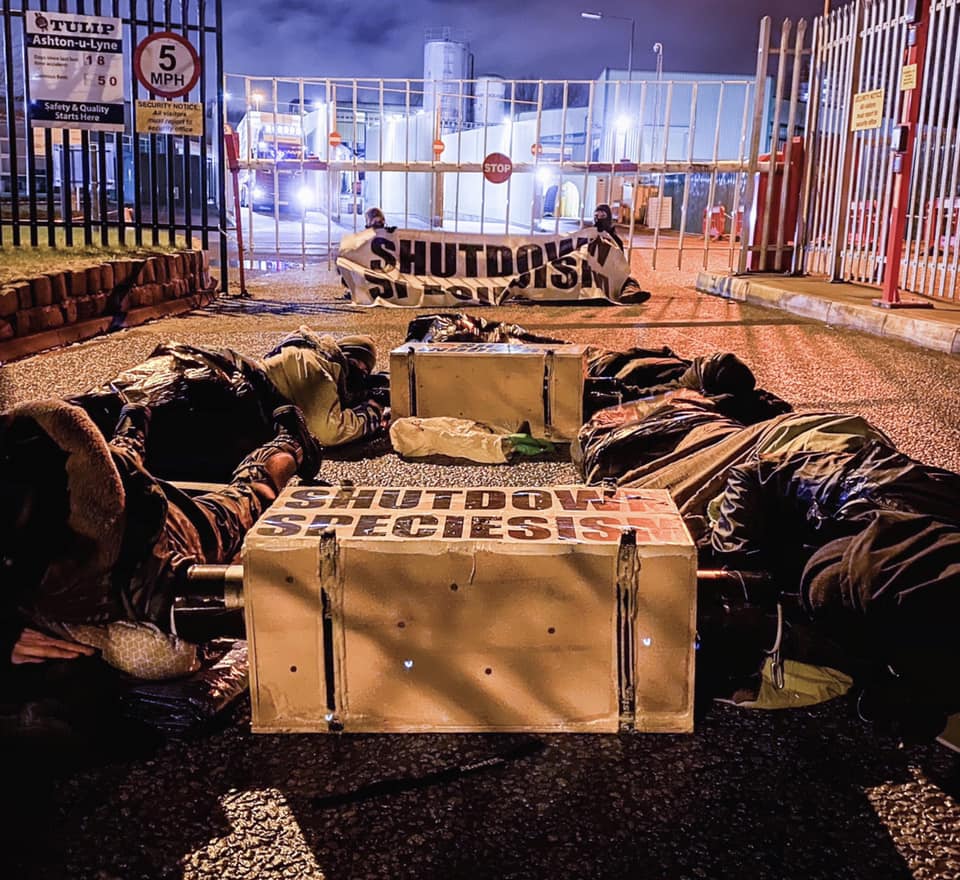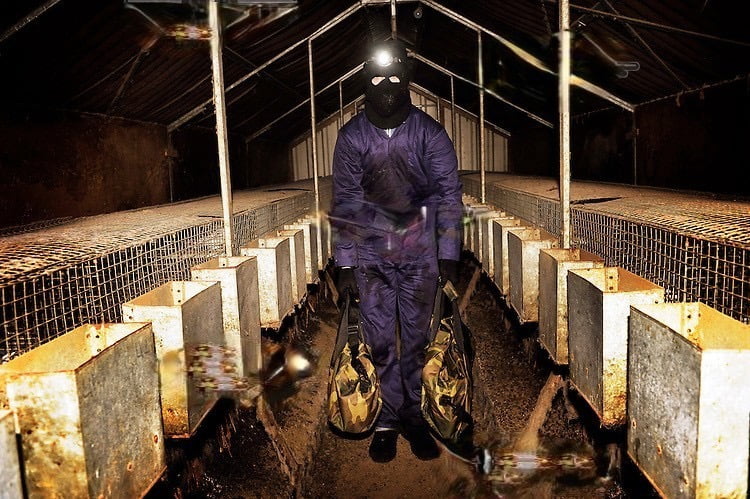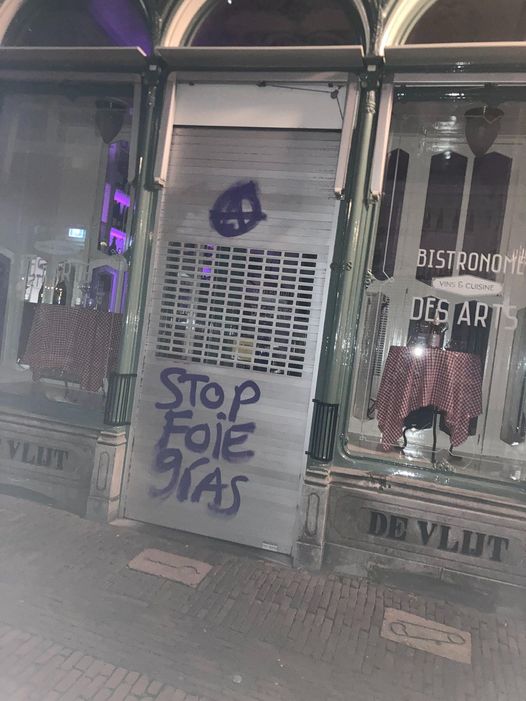VIA: Unicorn Riot. By Ryan Fatica,
Joseph Mahmoud Dibee, a 54-year-old environmental activist and former Earth Liberation Front saboteur, was sentenced to time served today after pleading guilty to two counts of conspiracy to commit arson and one count of arson. Dibee was also ordered to complete 1,000 hours of community service.
Dibee is a former member of an autonomous cell of the Earth Liberation Front and Animal Liberation Front, loose networks of activists who in the late 90s and early 2000s took responsibility for a string of attacks on industries, businesses, and government entities they saw as responsible for the mounting environmental crisis.
In 2005, in the midst of post-911 anti-terrorism fervor, the FBI rolled out Operation Backfire, which ultimately led to the indictment of nearly 20 people on serious felony charges. Although Dibee was not initially charged in the case, he was subpoenaed to appear before a federal grand jury to testify against another activist. When confronted with the choice of whether or not to cooperate, or ‘snitch,’ Dibee chose to flee to Syria, his family’s country of origin. Shortly thereafter, he was indicted in a sweeping conspiracy case.
In summer 2018, Dibee was captured in José Martí International Airport in Havana, Cuba on his way home from a business trip in Ecuador and was held by Cuban authorities for several days. According to Dibee, he was tortured, threatened with execution, and held without food or water. On August 9, 2018, he was turned over to the FBI and extradited to the United States.
In April 2022, after nearly two years of pre-trial incarceration, Dibee signed a plea agreement admitting to his participation in a conspiracy to commit arson at Cavel West, a meat packing facility in Oregon that was known for slaughtering wild horses, and at a Bureau of Land Management horse facility near Litchfield, California.
Today, two years and five months after his initial capture, Dibee appeared remotely before Federal Judge Ann Aiken’s court in Eugene, Oregon for sentencing. The prosecution asked the court to sentence Dibee to 87 months in prison, citing the severity of his crimes and his time on the run as reasons for a harsher sentence. Ultimately, Judge Aiken would reject that logic saying that time away from one’s family is always a punishment, whether one is in Syria, Russia, or in prison.
“Syria and Russia were not recreational destinations” at this time, the judge said.
In her lengthy statement, Judge Aiken cited Dibee’s 29 months of pre-trial incarceration, during which he was attacked by a white supremacist and later contracted COVID-19, as well as his years of self-imposed banishment abroad, as reasons for issuing the sentence of time served.
The judge also spoke at length about Dibee’s decades of efforts while he was on the run in Syria, Russia, and Ecuador to use his engineering skills to advance environmental causes.
Aiken also cited Dibee’s claim that he was tortured by Cuban authorities when he was captured in Havana. Dibee said they left him without water for days and told him that if he didn’t confess, they’d take him on a plane and drop him in the ocean and he would never be found.
“I don’t think an imagination could dream up” such stories, Aiken said.
She initially sentenced Dibee to pay more than $1.3 million in restitution to those entities targeted in his attacks, but decided to table the issue of restitution for a future hearing after Dibee’s attorney objected.
The judge cited Dibee’s lack of financial resources at present, saying he is not likely to be able to pay restitution soon “unless he strikes it rich” by creating a life changing technology, which Judge Aiken admitted “seems possible.”
While on the lam, Dibee taught environmental engineering at a university in Syria, even helping to plan a national project on renewable energy. In Russia, he started a business recycling used fuels into biodiesel. In Ecuador, he agreed to create a technology for ecologically sound gold mining to mitigate the dangers of mercury and other toxins involved in current technologies.
“Frankly, this country needs some of the technologies he’s able to craft,” the judge said.


















